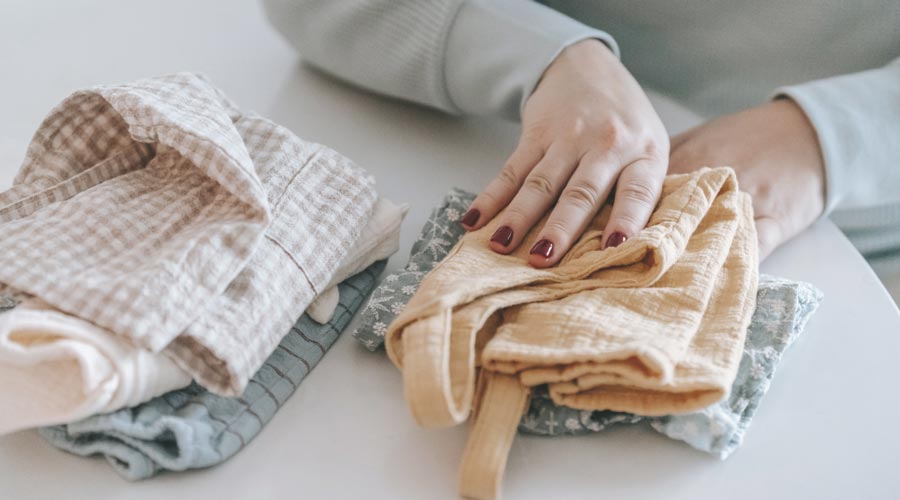Clothes for you
What do you actually wear when you’re in labor for hours? Ideally, a loose T-shirt that covers your bottom. Sweatpants, a fluffy bathrobe and slippers with non-slip soles should not be missing either. For the time after delivery, you will need one or two nightgowns with an unbuttonable top – this will make breastfeeding easier. Also cotton underpants and nursing bras. For your discharge, slip into maternity jeans and loose tops once again – because it still takes a while for your belly to fully recede.
Clothes for your baby
Every hospital provides bodysuits and rompers on loan for the first few weeks. However, you should bring a basic set of your own baby clothes. If you are not yet experienced, swaddling bodysuits are a good idea for the first time, as they are easier to put on. A warm jacket, socks and a cap are also useful for the first few days, even in summer, as the baby first has to adjust to the temperature outside the womb. A sleeping bag and burp cloths should not be missing.
Hygiene articles for you and the baby
In addition to toothbrush, toothpaste, shampoo and shower gel, you should pack enough absorbent pads. Hair elastics and lip balm are indispensable for the time of delivery – because, without wanting to scare you: One of the greatest physical challenges you have ever faced lies ahead of you. It can be annoying when your hair hangs around your face or your lips become chapped from all the panting. Nursing pads and cooling ointments for inflamed nipples make it easier for you to start breastfeeding. Of course, your baby will need diapers, wet wipes and, if necessary, a zinc-containing cream to prevent redness on the bottom.
Documents
To check into the hospital, you’ll need your health insurance card and maternity passport. Many hospitals offer to issue the baby’s birth certificate on the spot. You and your partner will need a valid ID card. If you are married, the marriage certificate must be included, otherwise your respective birth certificates will suffice. If you have it, remember the family register, in which the certificate of your child should be filed.
Useful things
Not only your cell phone, but also its charging cable must go in your hospital bag. Don’t forget a list of important phone numbers and medications you take regularly, such as asthma sprays. To transport the baby safely home after discharge, you will need a car seat. Familiarize yourself with how to use the buckles and straps beforehand – this will save time and hassle when leaving the hospital.
